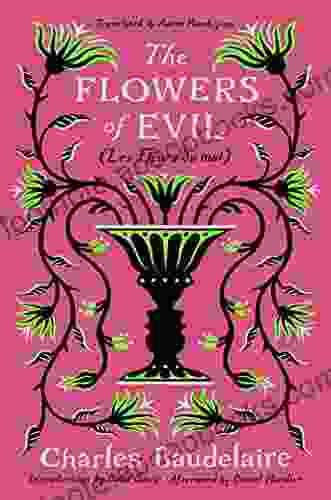In the annals of history, the name Mary Schweidler stands out as a haunting figure, forever etched in the collective memory as the "Amber Witch." Accused of witchcraft and executed in 1635, her story has captivated imaginations for centuries, inspiring countless tales and legends.
Now, award-winning author Peter Ackroyd breathes new life into this extraordinary tale with his mesmerizing novel, The Amber Witch. Through his masterful storytelling, Ackroyd transports us back to 17th-century Germany, a time when superstition and fear cast long shadows over the land.
The Woman Behind the Legend
Mary Schweidler was a young woman of humble origins, living in the isolated village of Coserow on the Baltic Sea coast. At a time when women had little agency, she exhibited an independent spirit and a keen intellect, qualities that would ultimately lead to her downfall.
As the religious fervor of the Reformation swept through the region, Mary's village became a hotbed of suspicion and fear. Rumors of witchcraft and demonic influence spread like wildfire, and Mary, with her unyielding beliefs and unconventional behavior, found herself at the center of the storm.
The Witch Trials
In an atmosphere thick with paranoia, Mary Schweidler was accused of consorting with the devil, causing illness and misfortune in her community. Despite her vehement denials, she was subjected to a series of torturous interrogations, during which she was forced to endure unimaginable pain.
Amidst the hysteria and desperation of the witch trials, Mary's fate was sealed. On September 21, 1635, she was burned at the stake in front of a jeering crowd. Her ashes were scattered to the wind, a grim testament to the darkness that can consume human hearts.
The Enduring Legacy
The execution of Mary Schweidler did not extinguish her story but instead cemented her status as a symbol of oppression and the dangers of unchecked fear. Over the centuries, her tale has been passed down through generations, inspiring works of art, literature, and music.
In the 18th century, the German writer Christoph Martin Wieland published Geschichte der Fräulein von Sternheim (The History of Miss von Sternheim),a fictionalized account of Mary's life that presented her as a sympathetic and tragic figure. This influential work helped to shape the popular perception of the Amber Witch as a victim of circumstance.
Ackroyd's Masterpiece
Ackroyd's The Amber Witch is a brilliant addition to the literary canon surrounding Mary Schweidler. With his characteristically rich prose and meticulous historical research, Ackroyd paints a vivid and immersive portrait of 17th-century Germany.
The novel delves deeply into the inner workings of Mary's mind, exploring the complex motivations and desires that shaped her fate. Ackroyd also provides a nuanced examination of the historical context, shedding light on the social, religious, and political forces that fueled the witch craze.
A Timeless Tale
The Amber Witch is not only a gripping historical narrative but also a timeless tale of human resilience, injustice, and the enduring power of storytelling. It is a novel that resonates with readers across generations, reminding us of the fragility of human rights and the importance of questioning authority.
As we delve into Mary Schweidler's extraordinary story, we cannot help but reflect on the countless other women who have been unjustly accused, persecuted, and silenced throughout history. Her tale serves as a chilling reminder of the dangers of prejudice and the urgent need for societies to foster understanding and compassion.
The Amber Witch is a masterful work of historical fiction that brings to life the haunting and unforgettable story of Mary Schweidler. Through Ackroyd's evocative writing and meticulous research, we are transported to a time of darkness and superstition, where the innocent could be condemned as witches and the truth was often obscured by fear.
Mary Schweidler's legacy is a complex and multifaceted one, a testament to both the horrors of the past and the enduring power of human resilience. As we commemorate her tragic fate, let us use her story to inspire us to fight against injustice and to seek out the truth, no matter how hidden it may be.

























































































